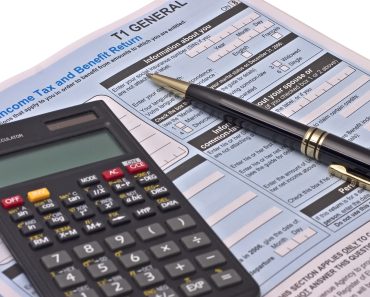
Did you know that how sales tax is handled in Canada can vary from province to province and territory to territory? Basically, each province and territory has its own set of rules and rates for collecting and submitting sales tax.
If you have a business in Canada, you need to understand sales tax, how it affects your customers, and how it can affect your business. In essence, sales tax is a tax that is included in the final purchase price of products and services.
Why is it so important? It may significantly affect your bottom line, your pricing, and your pool of potential customers. As a result, it’s something that your business needs to monitor constantly.
We’re here to help with a breakdown of sales tax in Canada. This includes the types of sales tax and the steps involved in collecting and remitting it.
We will also introduce you to a sales tax calculator and explain why tax experts can help make your sales tax obligations less complicated.
What Is Sales Tax in Canada?
When your customer buys goods or services in Canada, they have to pay a sales tax to the government. This is essentially a tax levied on consumers and paid to the government by businesses.
Sales tax affects businesses and consumers alike. Because of the way that this tax is handled, it can affect how you price your goods or services, the profits that you make, and even what or how your customers choose to purchase. It’s important to remember that each province in Canada has its own sales tax rate and regulations.
If you have a business in Canada, it’s important to understand the sales tax rules and regulations of your province and local area. This can keep your business running smoothly.
Types of Sales Tax in Canada
There are three types of sales tax in Canada that you should know and understand.
Federal Sales Tax – Goods and Services Tax (GST)
The federal sales tax is also called GST. The GST is a federal tax of 5% that is imposed on most goods and services sold in Canada, with some exceptions and exemptions.
Provincial Sales Tax (PST)
Products and services sold inside a province are subject to a sales tax levied by that province. Tax rates and exemptions vary by province and range from 6% to 10%. Some provinces have replaced PST with HST, which combines federal and provincial taxes.
Harmonized Sales Tax (HST)
The Harmonized Sales Tax is a national tax that combines provincial sales taxes with those for goods and services. The national government receives it, then transfers the appropriate portion to the provinces. The provinces that use HST are the following:
- Nova Scotia
- New Brunswick
- Newfoundland province
- The province of Labrador
- Ontario and Prince Edward Island
There are also some provinces that have a more unique system for calculating sales tax. Examples of some of these are:
British Columbia (BC)
British Columbia has a combined sales tax system, where both GST and PST apply separately. The GST is 5%, and the PST is 7%. Therefore, the total BC sales tax is 12%.
Quebec Sales Tax
Quebec also has a unique sales tax system. The GST is 5%, and the Quebec Sales Tax (QST) is 9.975%, making the total sales tax 14.975%.
Businesses must be aware of the sales tax rates in their province and adjust their pricing to reflect the appropriate taxes. The provincial sales tax rate and amount can be calculated with the help of the sales tax calculator.
Collecting and Remitting Sales Tax
If your company is registered for sales tax, you are responsible for collecting and remitting that tax. A taxable sale requires the collection of sales tax. Sales tax paid on business expenses may be offset by claiming input tax credits (ITCs).
Businesses in Canada that wish to collect sales tax must first register with the Canada Revenue Agency to do so (CRA). You can register by mail or online.
Once you have registered, you will receive a sales tax number. Your sales tax number is then used to file your sales tax returns and make payments.
It’s important to charge the proper sales tax rate when you make a taxable sale. You can then issue a sales receipt or invoice showing the amount of tax charged. Don’t forget to keep all your sales receipts and invoices for at least six years in case of an audit.
File your sales tax returns and make payments on time to avoid penalties and interest charges. The filing frequency depends on the size of your business and the amount of sales tax you collect. Most small businesses file quarterly returns, while larger businesses file monthly returns.
Using a Sales Tax Calculator
Calculating sales tax can be complicated and time-consuming, especially if you have to consider many tax rates. A sales tax calculator can simplify the process and save you time.
But, what is a sales tax calculator? It’s a handy online calculator for figuring out how much sales tax to add to a purchase. All you have to do is enter the price of the item or service and the applicable tax rate.
Tax calculators can also help you determine the after-tax price of an item and the tax savings on a sale. You can use this helpful tool to calculate sales tax for different provinces and territories in Canada, which is beneficial if you provide your products or services in different areas of the country.
Get Expert Help with Sales Tax
Managing sales tax can be overwhelming, especially for small business owners with limited resources. If you have questions about your sales tax obligations or need help, it’s a good idea to talk to tax experts.
Tax experts assist you in understanding the rules and regulations for sales tax in your province and advise you on handling your sales tax responsibilities. They can also help you prepare and file sales tax returns and deal with any sales tax audits or disputes.
Simplify Sales Tax with a Calculator and Expert Help!
In Canada, sales tax is an important part of running a business. This affects your pricing, profits, and customer base. Failure to comply with sales tax regulations can result in penalties and interest charges, which can negatively affect your business. Using a sales tax calculator can simplify the process of calculating sales tax and save you time.
Ready to simplify your sales tax management and avoid penalties? Contact Paycheck Guru today to learn how we can help you navigate the complex world of Canadian sales taxes. Don’t wait until it’s too late – contact us today to get started!





